Iowa County Man Drives to Work to Work at Home
What happens when an information technologist can't get enough bandwidth?
By Andy Moore | Here & Now
April 16, 2020
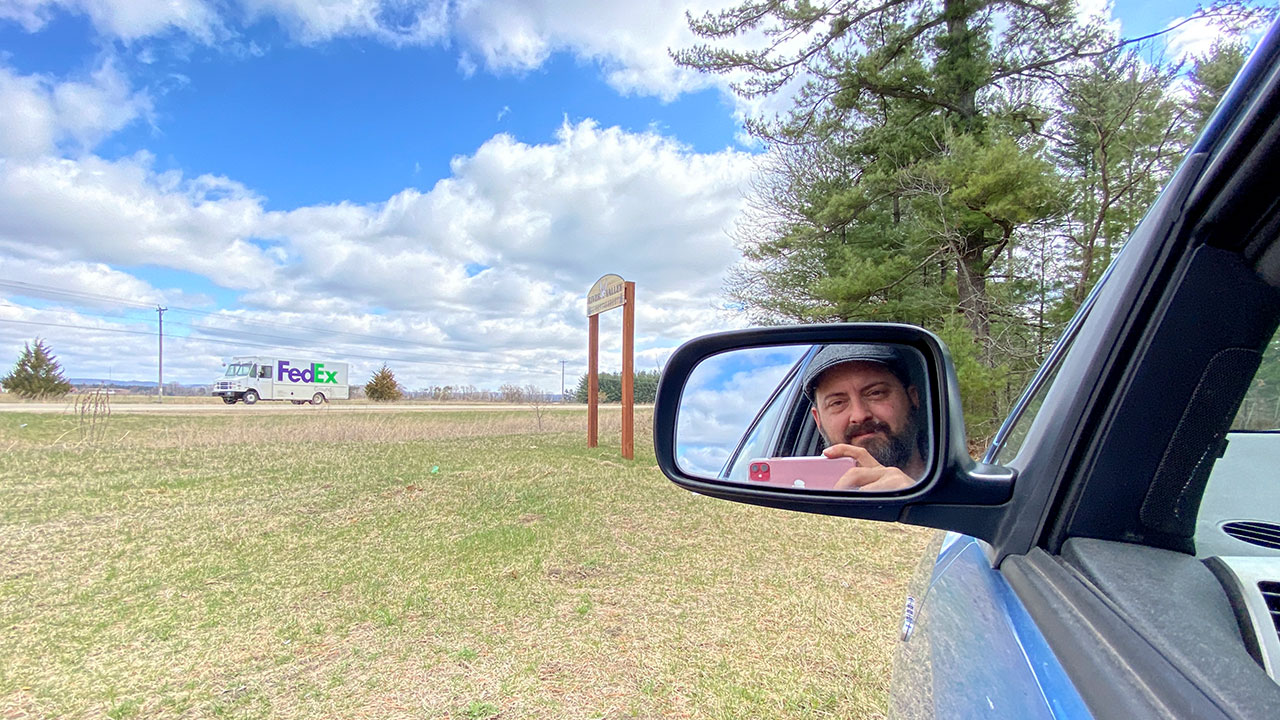
Four mornings a week, right after breakfast, Nate Royko Maurer leaves the house, gets in his car and drives to work at home. Confused? It’s the price Royko Maurer, who lives in rural Iowa County, pays for weak bandwidth in his part of the state. While some among us who are lucky enough to have work at home take internet access for granted, others in the home-bound Wisconsin workforce don’t have the luxury of walking across the hall to fire-up an online workday. Maurer works all day sitting in his 2006 Toyota Prius parked in the hotspot nearest to his home on the side of the highway.
Irony alert: Maurer is an Assistant Director of the University of Wisconsin-Madison’s Division of Information Technology. He takes his peculiar situation in stride, but is quick to point out more serious connotations of poor bandwidth during Safer at Home restrictions. “The lack of broadband internet access for the rural areas is a huge burden, especially now when kids are supposed to be logging in to do schoolwork.”
PBS Wisconsin asked Maurer more about his own digital dilemma and what it’s like to move his career into his car.
PBS Wisconsin: So you’re a computer specialist with no bandwidth?
Nate Royko Maurer: IT is my life at work and we live and breathe incredible network bandwidth on campus. Access to any broadband out here is almost non-existent. All of my neighbors are in the same boat. It’s not so bad in the towns, but even there, the bandwidth service is slow.
PBS Wisconsin: Where do you park your office to get reception?
Nate Royko Maurer: At first, I started setting up in what I thought was a little parking area for the local school forest. It’s not too far of a drive for me to get there. Over the past four weeks I have parked in a nearby town outside of a café, on an overlook where I can watch the Wisconsin River.
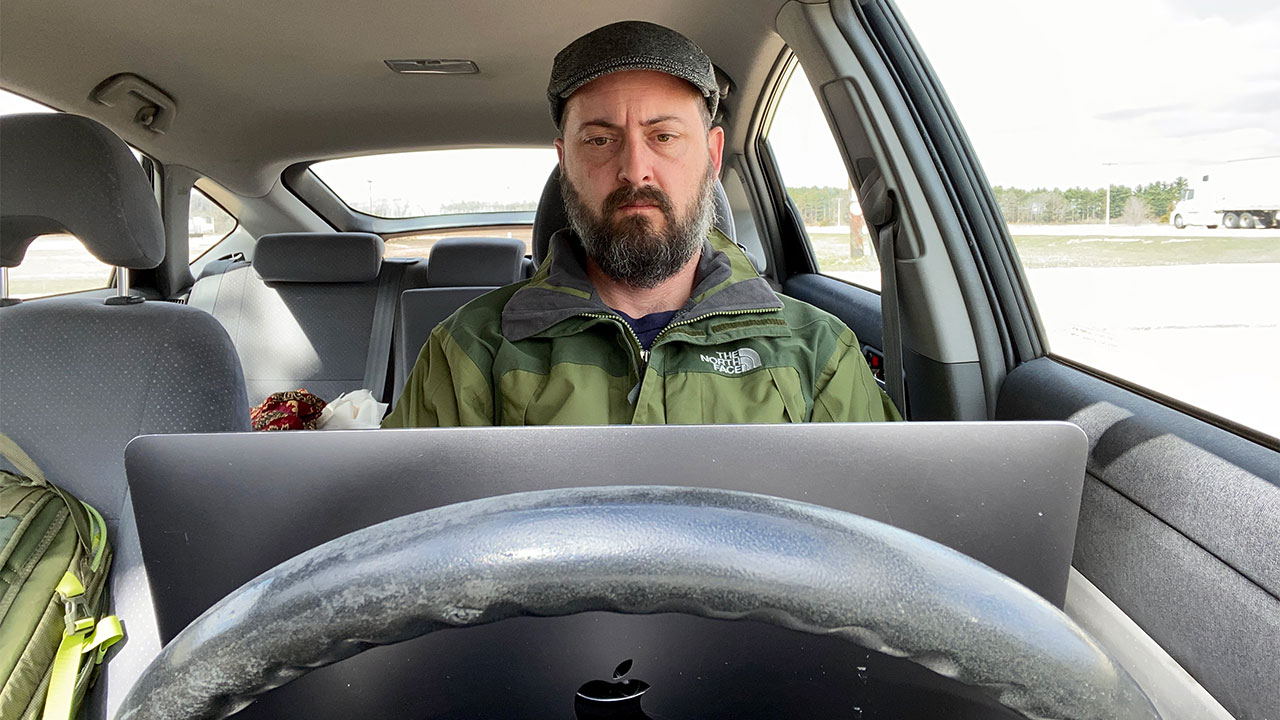
PBS Wisconsin: Are there any advantages to working in your car?
Nate Royko Maurer: I have windows! My office at work is in a security locked basement complex with no natural light. (Also), the office is mobile so I can change my view if I get bored. I see my family more often. I can be more focused in the solitude, but stay connected through video chat and text super easily. Occasionally I get to see wildlife.
PBS Wisconsin: Where do you sit in your car to work after you arrive on the job site?
Nate Royko Maurer: I’m in the driver’s seat the whole time. I have an inverter to charge the computer and cell phone and I use the cell as a hotspot to provide the computer with network. If the seat could just extend back 2 more inches it would be perfect.
PBS Wisconsin: What are the disadvantages of working in your car?
Nate Royko Maurer: This is bad for my back. Sitting in a car seat every day is terrible on the back. I had the local sheriff pay me a visit, because someone thought I was suspicious hanging out on the side of the road across the street from a storage facility every day. They were cool about it.
PBS Wisconsin: What do you do for lunch?
Nate Royko Maurer: If I don’t have meetings or other work keeping me busy, I just drive back up to the house and eat with my family. Many days I just work through and realize I haven’t eaten since breakfast.
PBS Wisconsin: Do you use video conferencing from the driver’s seat?
Nate Royko Maurer: I live in those (virtual meeting) apps all day long. I got kicked off of a video conference meeting I was in because I left my phone on the dashboard and it overheated in the sun to the point where it shut itself down and I lost my network connection. I spent the next five minutes frantically trying to get the car’s air conditioning to cool it down so I could turn it on and get back to the meeting. I know what dogs go through when they’re left in hot cars.
PBS Wisconsin: How long can you keep this up?
Nate Royko Maurer: I don’t expect things will return to normal for a long time. I’ll need to come up with a better solution than this eventually.”
 Passport
Passport




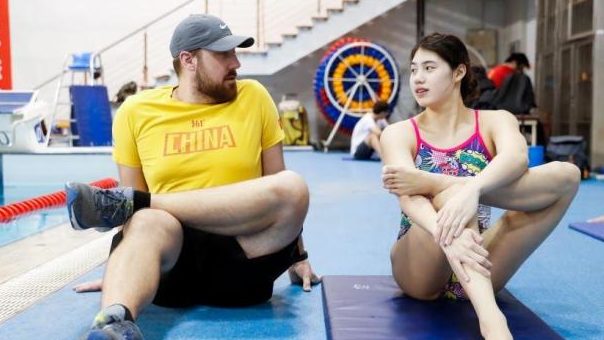
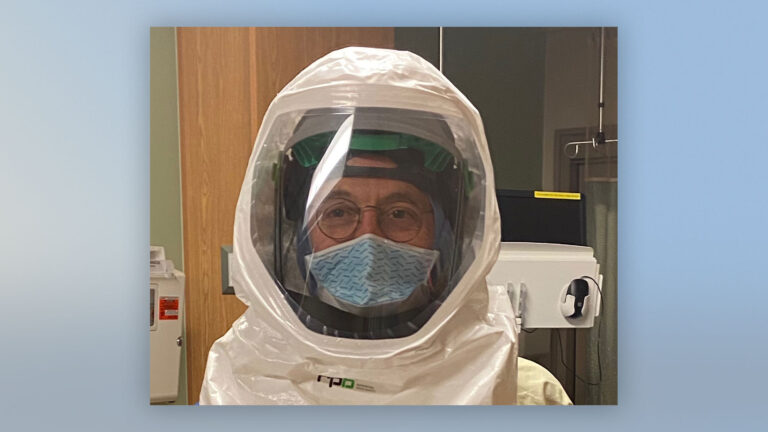


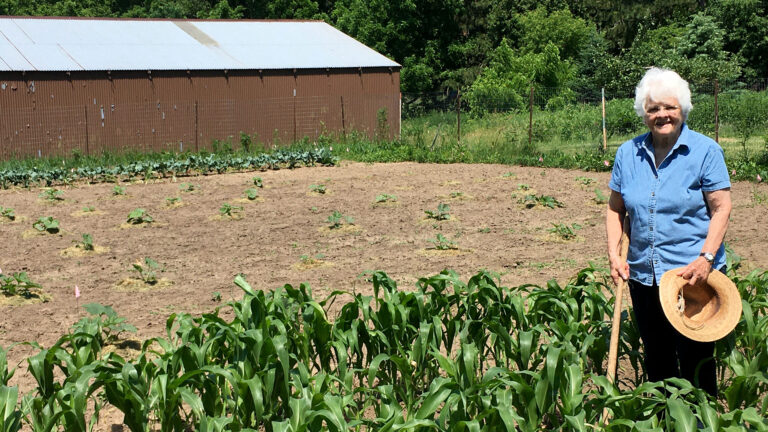


Follow Us